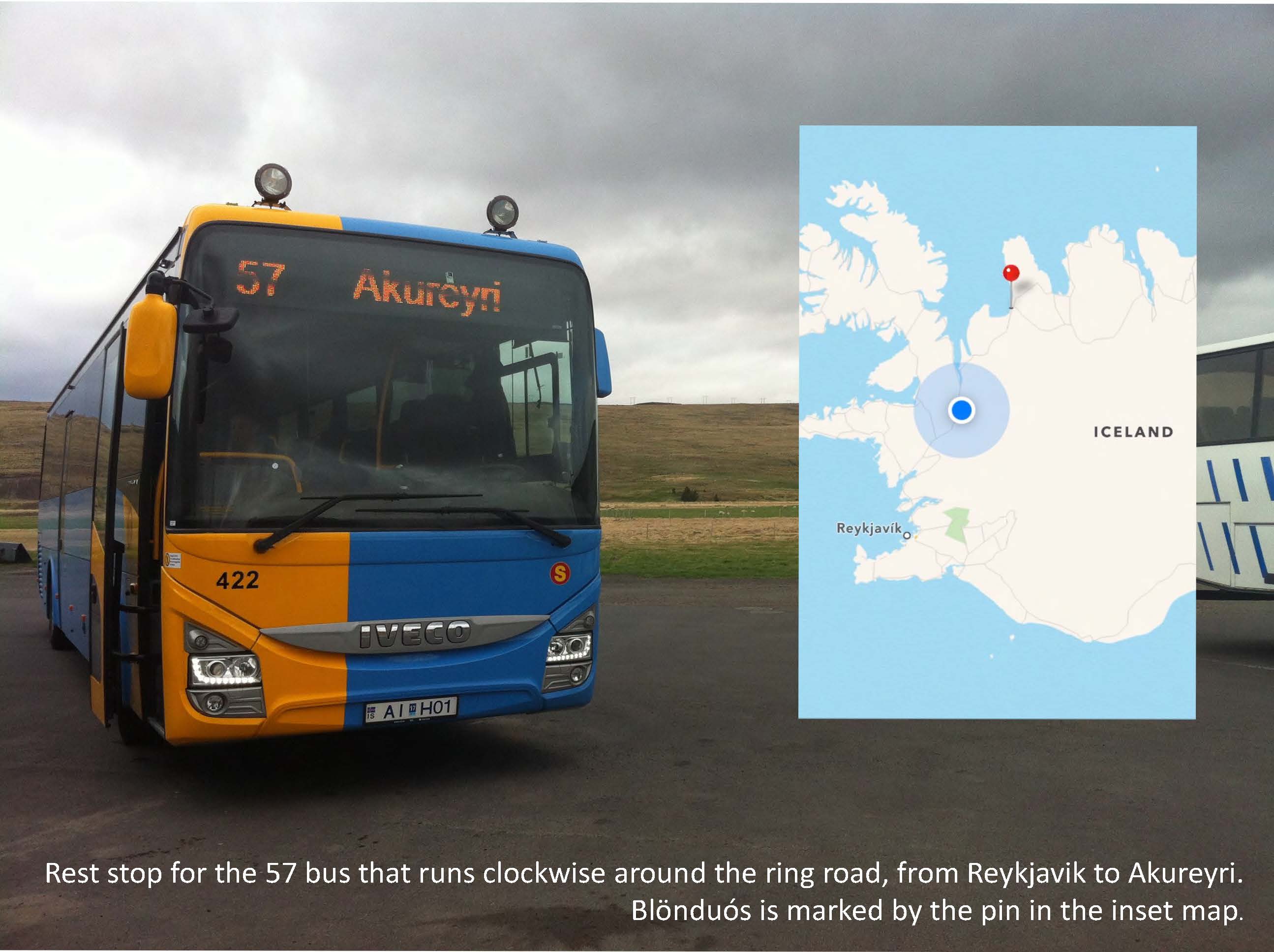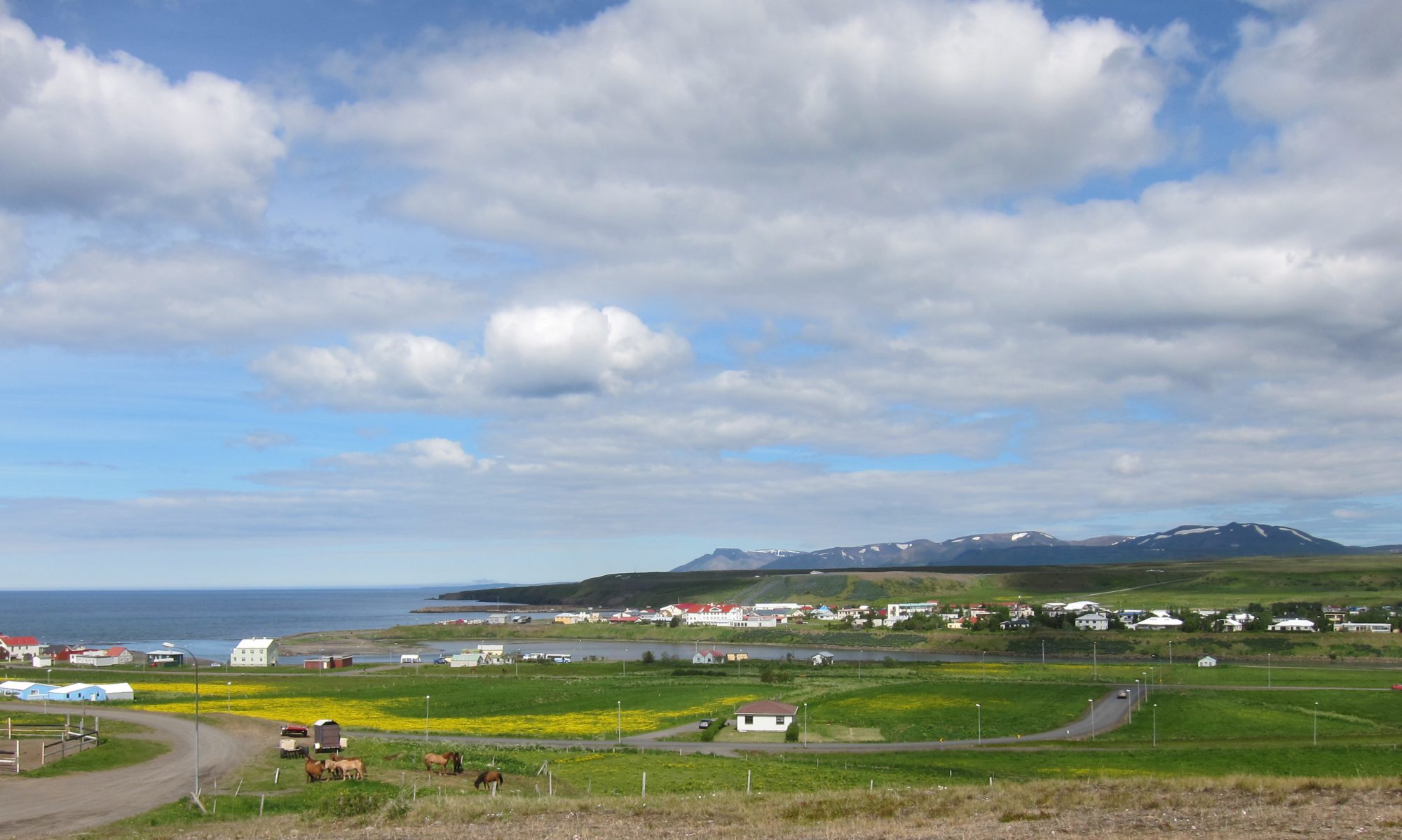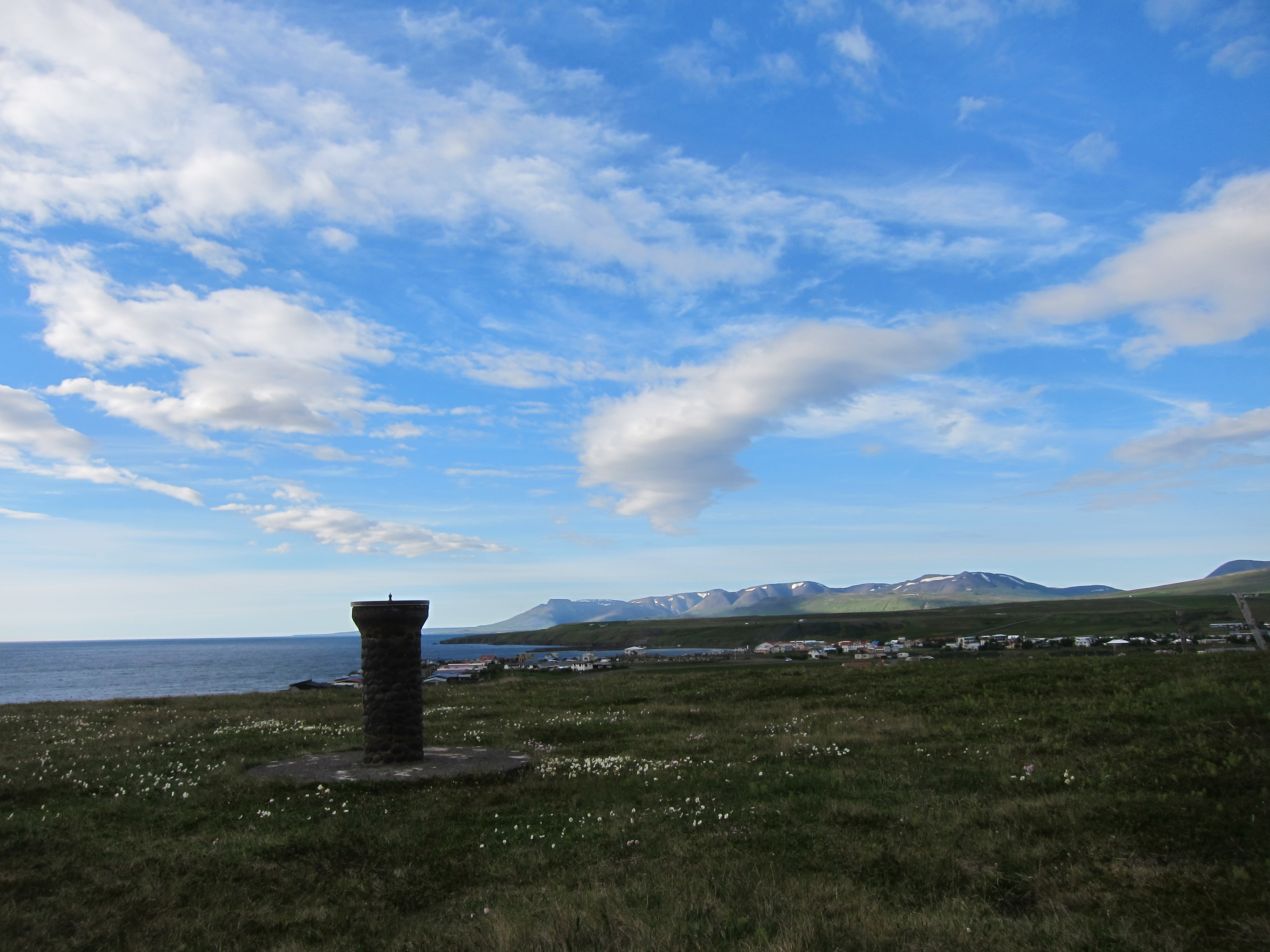
The Icelandic Field School is sited at Blönduós, a town of about 900 people in NorthWest Iceland. Blönduós is notable for the Icelandic Textile Centre, the host for our studies; an exceptional Textile Museum, part of Iceland’s heritage trail; and the extraordinary glacial waters of the Blanda River, which is renowned for bird nesting and salmon fishing and leads to the Húnafloi or Húna Bay of the Arctic Sea. Blönduós is nestled within farms and pastures, with hills and mountains in the distance and like most communities in the country, features a fabulous yearround swimming pool.
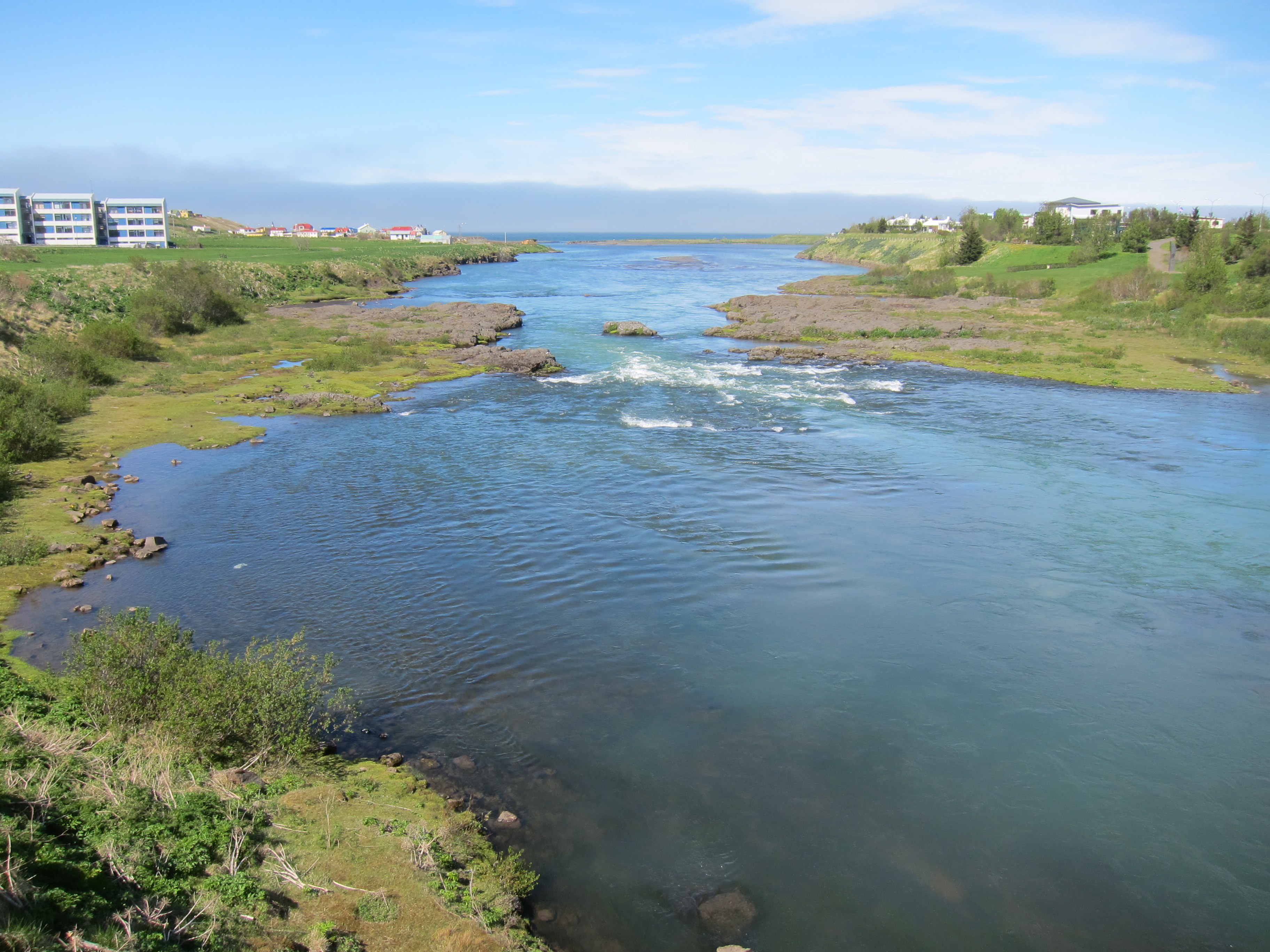
The Blanda has been dammed by the Icelandic hydropower company, Landsvjirkun, whose underground power plant, Blöndustöð, we were privileged visited in 2018. While the environmental impact of dams is rightly contentious, the Blanda Power Station was the 2017 winner of the IHA Blue Planet Award, recognizing its sustainability and community consultation.
The month of June is particularly active in Blönduós, with the annual Icelandic Knit Fest | Prjónagledi bringing handwork specialists to the town from all over northern Europe and Scandinavia. Every year, Concordia students help out the organizers, often dressing up lampposts with characters knit by locals, marking the street route to Festival sites such as the Textile Museum and local hotel.

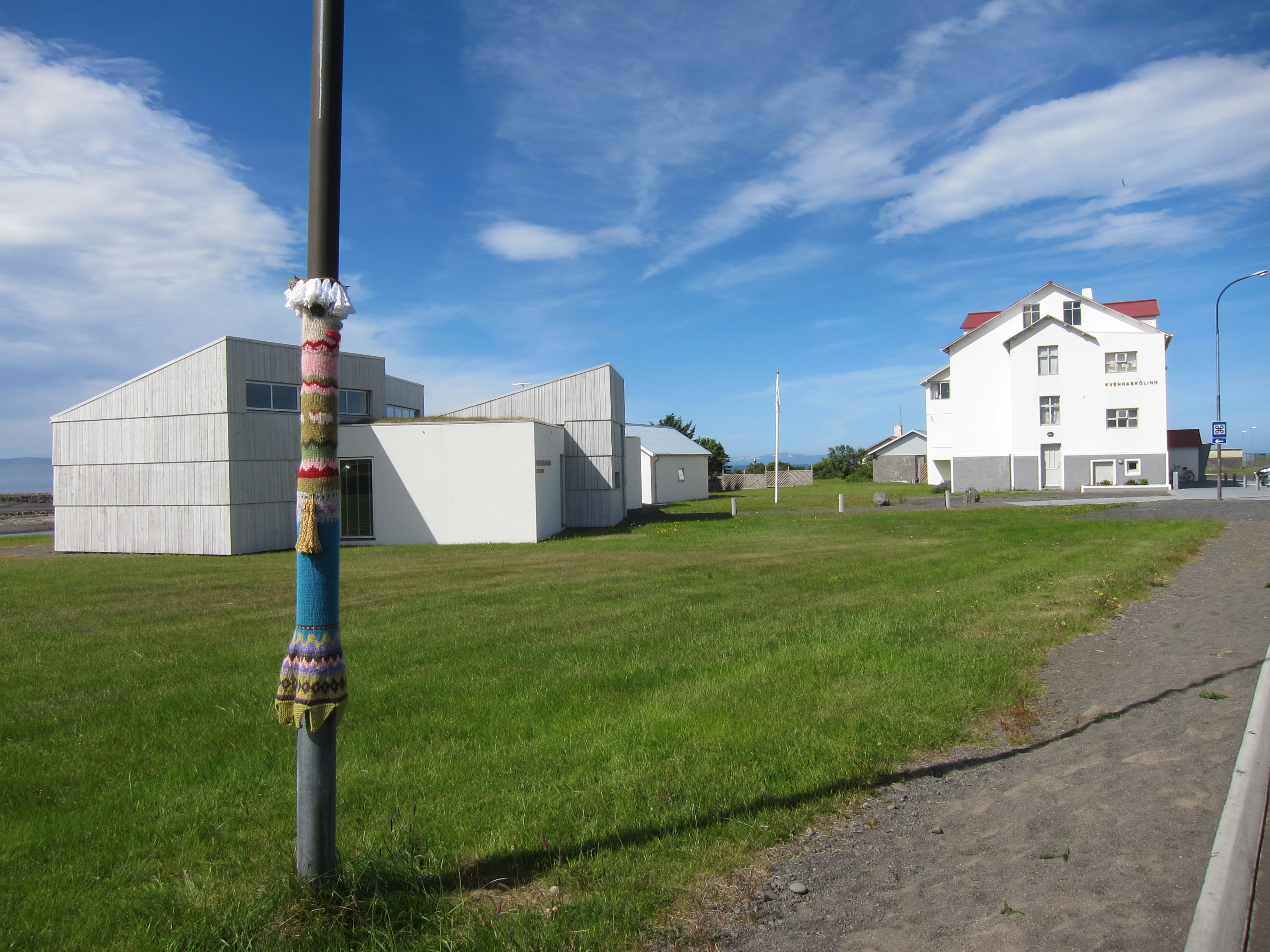
The national holiday on June 17 offers us opportunities to fête our host country with locals and to learn more about cultural heritage. In, 2018, we marked the centenary of Iceland’s independence, celebrating with community members in collaboration with the Textile Centre . In 2024, festivities highlighted 80 years of the the Icelandic Republic.
This area of Iceland is a locus of horse and sheep farming. In fact, the lore is that there are more horses and sheep than people in the NorthWest. Walks into the hills surrounding the town bring us quickly to farms and their animals – Icelandic horses and sheep in particular – which often seem as curious about us as we are about them.
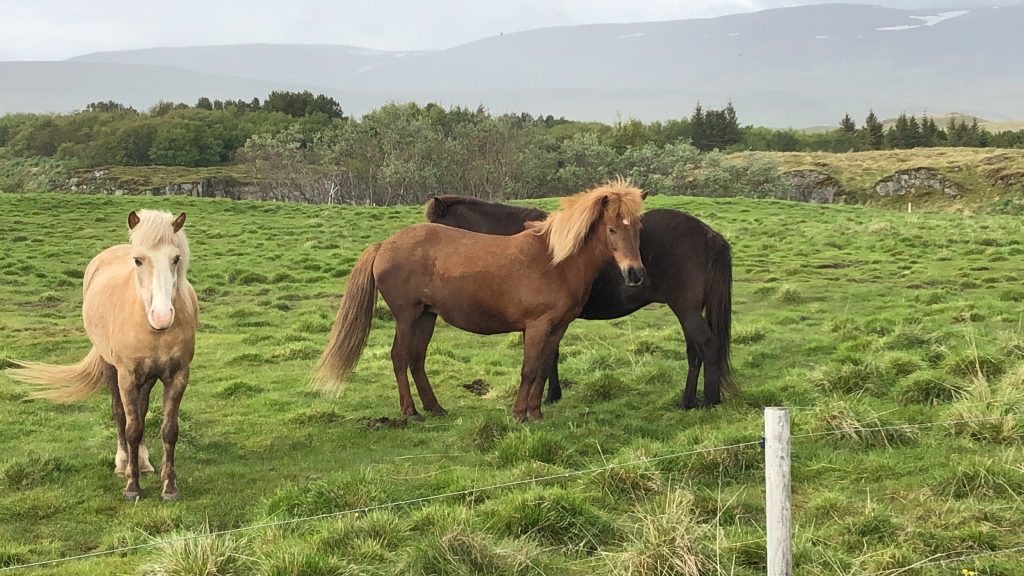
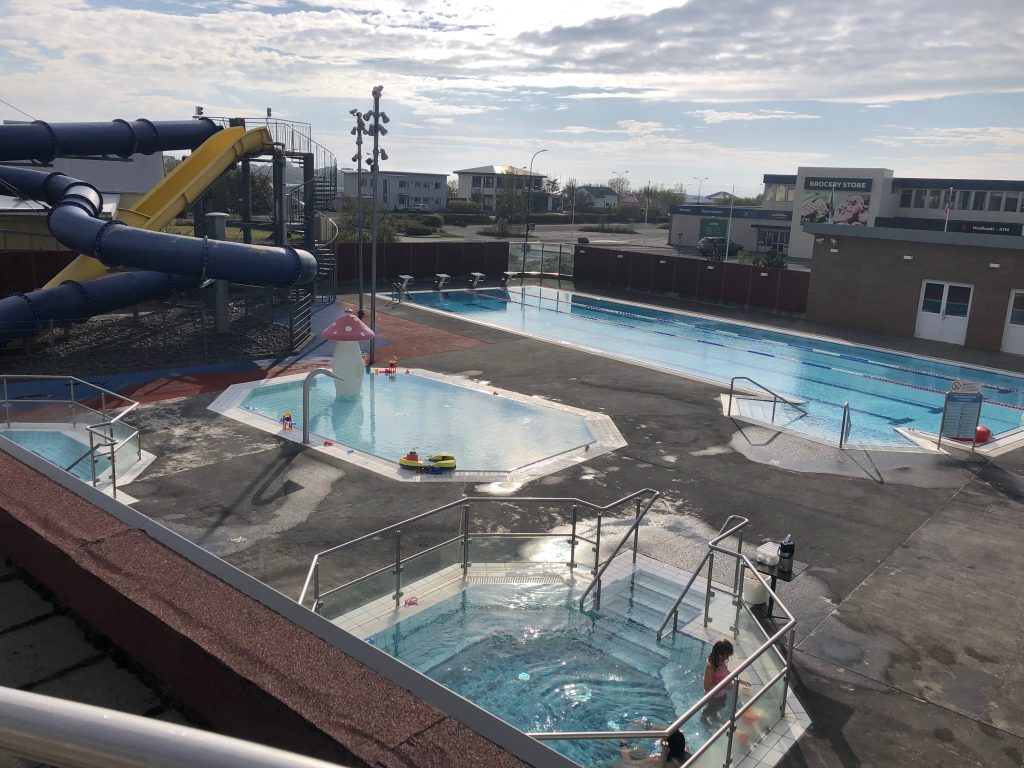
A four-hour drive north of Reykjavik, Blönduós is also reportedly one of the busiest stops on Iceland’s highway 1, the Ring Road. Like the rest of Iceland, Blönduós has benefited from the surge in tourism to the country. Our local hosts are generous and Field School participants strive to be respectful visitors.
